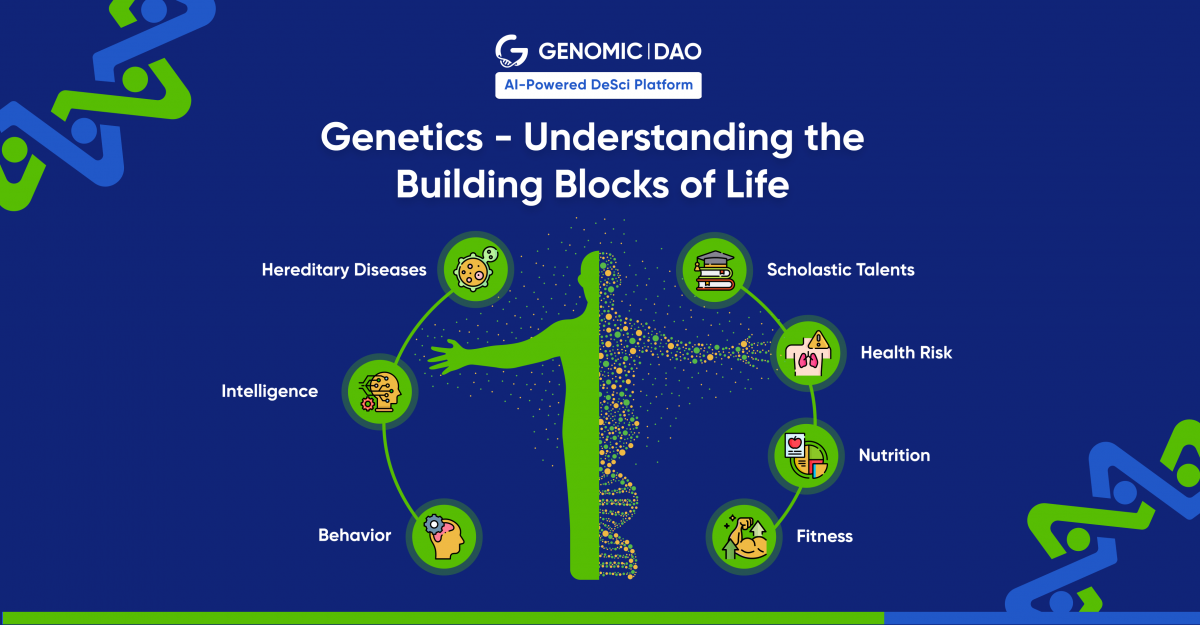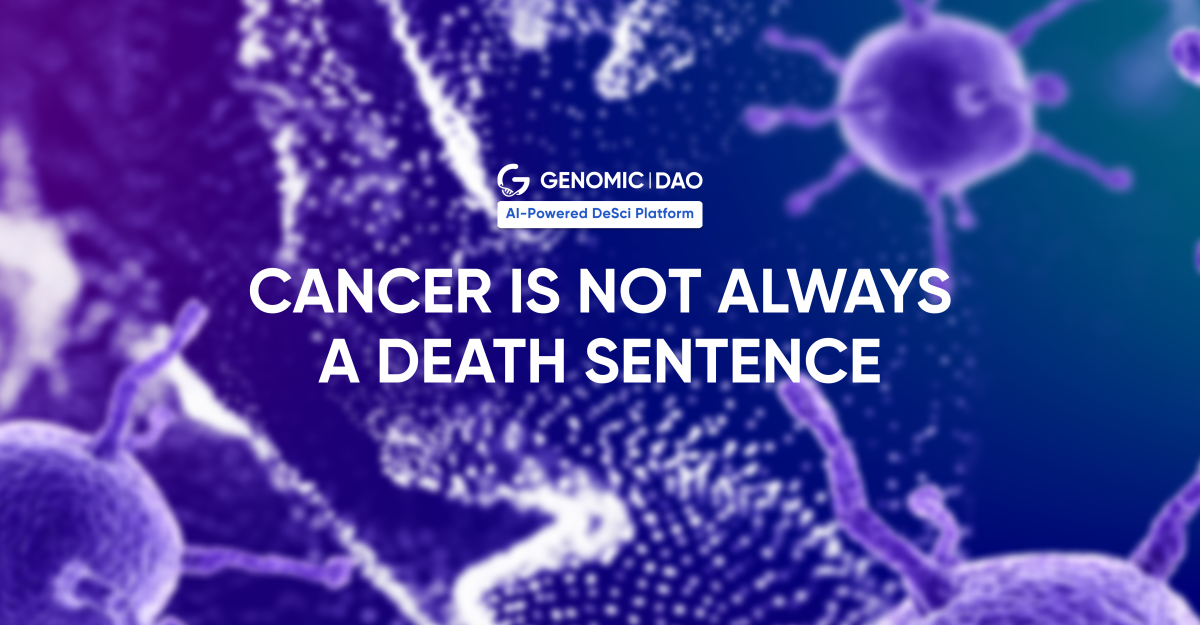
Genetics is the study of genes and their role in the heredity and variation of living organisms. The field of genetics has been at the forefront of scientific research, paving the way for advancements in medicine, agriculture, and biotechnology.
Genes, the basic units of heredity, are made up of DNA, which instructs cells on how to build proteins that perform various functions in the body. An international research effort called the Human Genome Project, which worked to determine the sequence of the human genome and identify the genes that it contains, estimated that humans have between 20,000 and 25,000 genes (1).
What do your genes determine?
Genes carry the information that determines your traits (say: traits), which are features or characteristics that are passed on to you — or inherited — from your parents. The genes code for different characteristics, such as eye color, body type, or male or female sex.
For example, genes are why one child has blonde hair like their mother, while their sibling has brown hair like their father.
Additionally, studies have shown that individuals’ psychological characteristics such as intellectual abilities, personalities, and mental health can also be influenced to some degree by genes (2). Some prominent characteristics include IQ, EQ, introversion/extroversion, emotional instability, and more.
Study of Genetics
The study of genetics is a fascinating field that involves the exploration of the genetic material of living organisms and the mechanisms by which this material is passed down from generation to generation. This can include the investigation of specific genes and how they function, as well as the examination of larger-scale patterns of genetic variation within populations.
Thanks to the insights provided by genetics research, we have made significant strides in the field of medicine. Researchers have developed gene therapies that can target specific genetic mutations responsible for inherited conditions. Additionally, the identification of genetic risk factors for diseases such as cancer and Alzheimer’s has revolutionized our understanding of these conditions and allowed us to develop more targeted approaches to treatment and prevention.
The Human Genome Project, completed in 2003, was a major milestone in genomics research. It involved sequencing the entire human genome, which provided a wealth of information about our genetic makeup and opened up new possibilities for personalized medicine and gene therapy (3).
Source: Human Genome Project
Genetic Testing or Gene Decoding
Genetic testing is a type of medical test that identifies changes in genes, chromosomes, or proteins. The results of a genetic test can confirm or rule out a suspected genetic condition or help determine a person’s chance of developing or passing on a genetic disorder (5).
Gene decoding uses laboratory methods to decipher deoxyribonucleic acid (DNA) inside your genes. There are various types of genetic tests available in the market.
23andMe offers direct-to-consumer DNA testing with the most comprehensive ancestry breakdown, personalized health insights, and more.
Prenetics’s CircleDNA provides actionable health insights across 500+ reports based on your unique genetic blueprint.
Genetica, the leading AI-powered gene decoding company in Asia, provides low-cost gene test solutions to provide its users with in-depth personalized reports on optimal plans for fitness and diet; children’s development, and critical illness prevention (cancers, diabetes; strokes…).
The Future of Genomics Research
Application of Genomics in Health
Genomics and Cancer
Due to advances in genomic medicine, we now can take cells from cancer or tumor and test the genome of the cancer cells. Based on this type of genomic testing, oncologists can recommend targeted therapies by prescribing chemotherapies that will take advantage of specific mutations in cancer (4).
Genomics and Heart Disease
Genome research has had a significant impact on inherited heart diseases. In 2003, we knew of 10–15 genes that could cause these hereditary conditions. Now we know of over 150 different genes that can cause these conditions.
We have learned that some genes can cause more than one type of inherited heart condition, allowing physicians to develop tailored screening and treatment regimens to minimize the risk of experiencing a cardiac event (4).
Genomics is the backbone of Precision Medicine
Regarding its contribution to precision medicine, gene decoding allows clinicians to have a better understanding of the potential for disease, as well as prevention and treatment options based on the individual patient’s data. Genes decoding insights help tailor personalized medical care to the needs of the patient. Using genetic information in personalized medicine can improve patient outcomes and reduce healthcare costs (5)
Genomics research has the potential to change healthcare by providing personalized treatments for genetic disorders. Open-source tech has also helped advance genomics research, making it easier to share genetic data. The future of genomics research is promising, with the potential to cure genetic disorders and improve the lives of millions of people. As we learn more about the genome, we will have a better understanding of the essential elements of life and how to use that knowledge to improve the health and well-being of all living things.
References
- What is a gene?: Medlineplus Genetics (no date) MedlinePlus. U.S. National Library of Medicine. Available at: https://medlineplus.gov/genetics/understanding/basics/gene/ (Accessed: February 28, 2023).
- Baker LA. THE BIOLOGY OF RELATIONSHIPS: WHAT BEHAVIORAL GENETICS TELLS US ABOUT INTERACTIONS AMONG FAMILY MEMBERS. De Paul Law Rev. 2007;56(3):837–846.
- The Human Genome Project (no date) Genome.gov. Available at: https://www.genome.gov/human-genome-project (Accessed: February 28, 2023).
- Scott M. Weissman, M.S. (no date) Application of genetics and genomics in medicine, Resources. Available at: https://resources.genomemedical.com/genetics-genomics-in-medicine (Accessed: February 28, 2023).
- Jethani, Z. (2019) Precision Medicine turns a corner, Pacific Neuroscience Institute. Available at: https://www.pacificneuroscienceinstitute.org/blog/brain-tumor/precision-medicine-turns-corner/ (Accessed: February 28, 2023).






